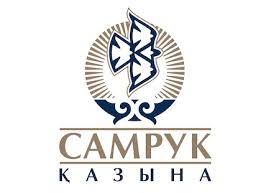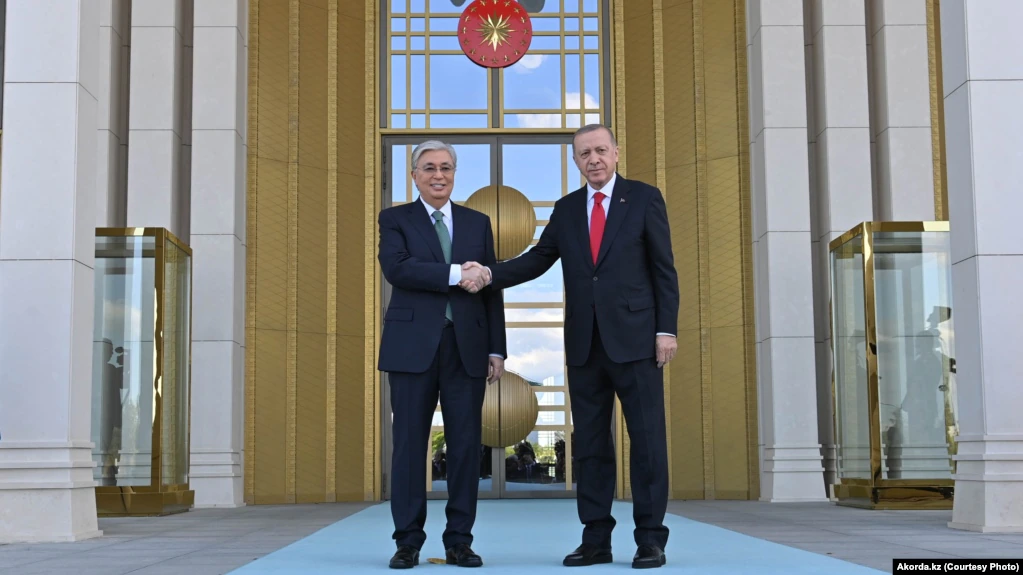 Kazakhstan's sovereign wealth fund Samruk-Kazyna said it's scrapping a planned acquisition of three pension funds controlled by commercial lenders after Halyk Bank halted talks on buying the government's shares in BTA Bank. "Taking into account that the sale of BTA Bank to Halyk won't happen, Samruk-Kazyna doesn't plan to purchase stakes in pension funds, including Halyk's unit," the Astana-based wealth fund said in a statement e-mailed today.
Kazakhstan's sovereign wealth fund Samruk-Kazyna said it's scrapping a planned acquisition of three pension funds controlled by commercial lenders after Halyk Bank halted talks on buying the government's shares in BTA Bank. "Taking into account that the sale of BTA Bank to Halyk won't happen, Samruk-Kazyna doesn't plan to purchase stakes in pension funds, including Halyk's unit," the Astana-based wealth fund said in a statement e-mailed today.
Halyk said yesterday that talks on buying a stake in BTA were discontinued by mutual consent after the completion of due diligence on the twice-defaulted lender. Halyk will transfer assets of its pension fund to the state-run Single Pension Fund without compensation under existing law, Chief Executive Officer Umut Shayakhmetova told reporters in Almaty today.
As part of a move to unify Kazakhstan's almost $23 billion of retirement savings under a single state-run pension fund, the Kazakh government had said it planned to swap its stake in BTA for Halyk's pension fund. It then wanted to offer its remaining shares in the defaulted bank to Halyk, which is controlled by President Nursultan Nazarbayev's daughter and son-in-law.
The central Asian nation has sought to shed assets after bailing out defaulted lenders in the 2007-2009 economic crisis and handing them to the wealth fund. After credit markets froze and a property bubble burst, Samruk-Kazyna took over BTA, the biggest lender at the time, Alliance Bank and Temirbank.
Presidential Orders
Kazakh President Nursultan Nazarbayev has ordered the sale of state stakes in Alliance, Temirbank and BTA by the end of this year. The lenders restructured about $20 billion in debt after defaulting in 2009. BTA overhauled its debt in December for the second time since 2010.
"Potential buyers continue due diligence on BTA Bank," Samruk-Kazyna said today.
Under a government decree published in March, Samruk-Kazyna was allowed to become a shareholder in pension funds controlled by Halyk, BTA and Kazkommertsbank. Halyk, the country's second-largest lender, wanted to separate the planned sale of its pension fund from the acquisition of BTA shares.
Halyk's fund is the country's biggest, controlling 1.2 trillion tenge ($7.8 billion) of pension assets as of Oct. 1, or 33 percent of the total, according to the regulator's website. It's followed by the state-owned pension fund with 741 billion tenge in assets. BTA's Ular Umit and Kazkommertsbank's Grantum managed 425 billion tenge and 332 billion tenge, the data show.
Government Plans
Then-Deputy Prime Minister Kairat Kelimbetov, who was appointed central bank chairman last month, said in February that the government wanted to buy Halyk's pension fund with BTA shares, according to Interfax. Kazakhstan also planned to propose to Kazkommertsbank the state's shares in the lender in exchange for its pension fund, Kelimbetov was cited as saying.
If the government takes over retirement savings in Halyk's fund, the lender may use the "very liquid" 41 billion tenge it has invested in the pension fund's equity capital to pay a special dividend, Shayakhmetova said today.
"That's the current situation, but we will see what can be done on this issue," Shayakhmetova said, without elaborating.
The transfer of assets under management of Halyk's pension fund will begin on March 26 and is scheduled to be completed by June 26, the lender said in a presentation on its website.
Halyk 's pension fund had a net income of 3.9 billion tenge in the third quarter as it charged management fees equal to 15 percent of investment income and 0.6 percent of assets a year, according to its presentation. The lender managed money belonging to 2.5 million individuals, according to the pension fund's website.
To contact the reporter on this story: Nariman Gizitdinov in Almaty at
To contact the editor responsible for this story: Stephen Voss at














